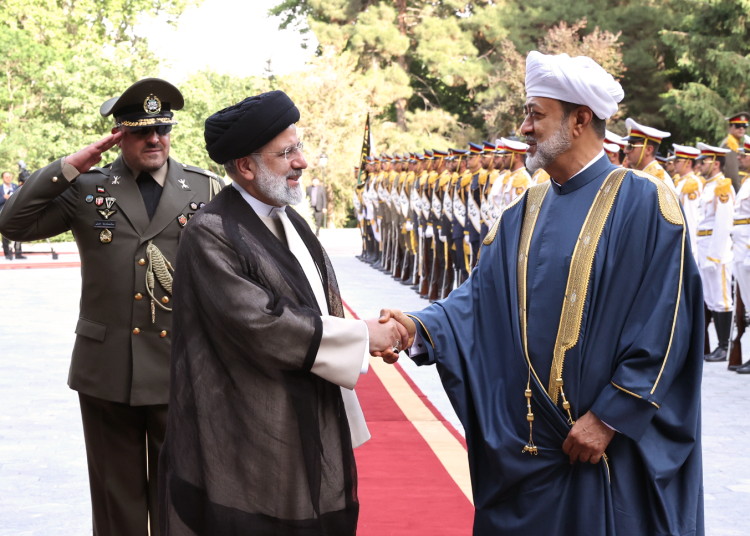In a crucial diplomatic maneuver, the Sultan of Oman, Haitham bin Tariq Al Said, now graces the Iranian capital, Tehran, as an esteemed guest for a two-day visit. Upon the invitation of the Iranian president, Ebrahim Raisi, this visit serves as a reciprocal gesture to the Iranian president’s sojourn in Muscat last year. Recognizing the limited frequency of the Sultan of Oman’s overseas engagements, the timing and context of his presence in Tehran warrant close and prudent attention.
The first dimension of the Sultan’s agenda revolves around fostering bilateral cooperation, with a heightened focus on the economic sphere. This emphasis on collaboration manifested through the signing of four documents of cooperation in Tehran today, reflecting the shared determination in fortifying ties and mutual growth.
Moreover, the visit is poised to tackle regional concerns, specifically Oman’s aspirations in assuming a mediating and facilitating role in addressing contentious issues. Mere days before his Iranian visit, the Sultan traveled to another Arab nation, Egypt, to facilitate the enhancement of Iran-Egypt relations, a pursuit bolstered by the recent positive turn in Iran-Saudi Arabia agreement to restore diplomatic ties. The significance of the Iran-Egypt nexus is expected to feature prominently in the ongoing discussions during the Sultan’s stay in Tehran.
Lastly, the Sultan’s visit could carry implications on the international front, specifically in mediating the persisting tension between Iran and the United States.
Oman is actively striving to facilitate a prisoner exchange between the two nations and the release of Iranian frozen funds, including those in South Korea. Deliberations on these matters have long been underway but face substantial hurdles and skepticism from the American side.
Notably, the Iranian foreign minister, Hossein Amirabdollahian, recently divulged that the current prisoner exchange process stems from an agreement reached approximately 1.5 years ago.
Iran Nuances correspondent in Tehran understands that the protracted nature of the negotiations has sown the seeds of doubt in Iran over the sincerity of the US government in seeking a resolution. In light of these uncertainties, the Sultan of Oman could emerge as a potential guarantor, vouching for the genuine intentions of the US for a deal. During his ongoing visit, the Sultan might need to offer reassurance regarding the process, its timeline, and further details concerning the allocation and release of Iran’s frozen funds.
As the Sultan’s visit unfolds, the observers now eagerly await the outcomes and consequences of this significant diplomatic endeavor.






